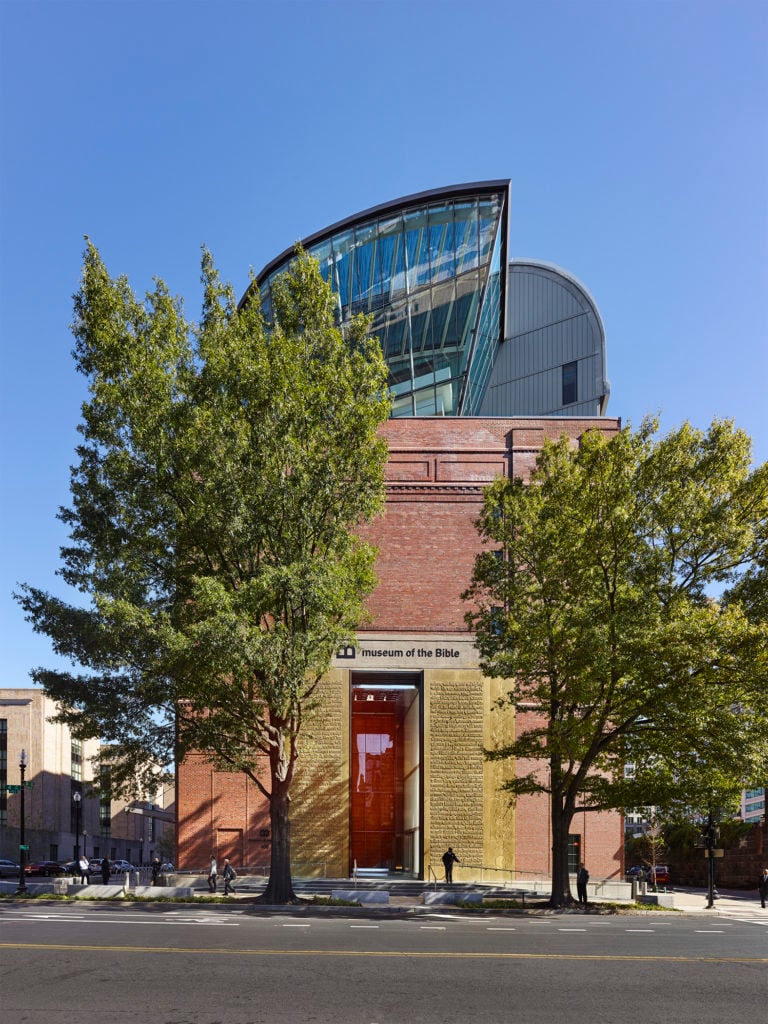Law & Politics
The Museum of the Bible Removes Five of Its Dead Sea Scrolls From View After Researchers Prove They’re Fake
Scientific analysis of the scroll fragments found "characteristics inconsistent with ancient origin."

Scientific analysis of the scroll fragments found "characteristics inconsistent with ancient origin."

Eileen Kinsella

Some of the Museum of the Bible’s most valuable objects—five fragments of the Dead Sea Scrolls—have been deemed fakes following a German analytics company’s forensic examination. The artifacts will be taken off display from the private Washington, DC, museum, which was founded by Hobby Lobby president Steve Green.
After doubts were raised about the scrolls in April 2017, the museum sent five fragments to the Federal Institute for Materials Research and Testing in Berlin. The company subjected the fragments to three-dimensional digital microscopy and analyzed ink and sediment on the papyrus. The analysis found that the fragments “show characteristics inconsistent with ancient origin and therefore will no longer be displayed at the museum,” according to CNN.com.
The museum’s chief curatorial officer, Jeffrey Kloha, said the outcome was “an opportunity to educate the public on the importance of verifying the authenticity of rare biblical artifacts, the elaborate testing process undertaken and our commitment to transparency,” in an interview with CNN. Neither the Museum of the Bible nor the materials researchers in Berlin immediately responded to requests for comment.
Some scholars have theorized that forgers used old scraps of papyrus or leather to make the fakes more difficult to identify, while others reportedly raised questions about the objects even before the museum’s official opening last November. There are scholars who contend that all 16 of the fragments in the museum’s collection are fake, the report says.
Museum founder and chairman Steve Green owns the 400,000-square-foot property that houses the institution, which he bought in 2012 for $50 million. Green and his family bought the fragments between 2009 and 2014 but he would not say how much they spent on them and said he doesn’t know where they came from. Comparable purchases show that buyers have paid millions for similar pieces of Dead Sea Scrolls, according to CNN.
This is not the first time the museum has had a run in with problematic artifacts. In July 2017, a US Department of Justice civil action outlined a years-long, willful pattern of smuggling Iraqi artifacts into the US despite numerous warnings, interceptions, and large-scale purchases that were “fraught with red flags.”
At the time, Hobby Lobby representatives said the company was cooperating with the Department of Justice.